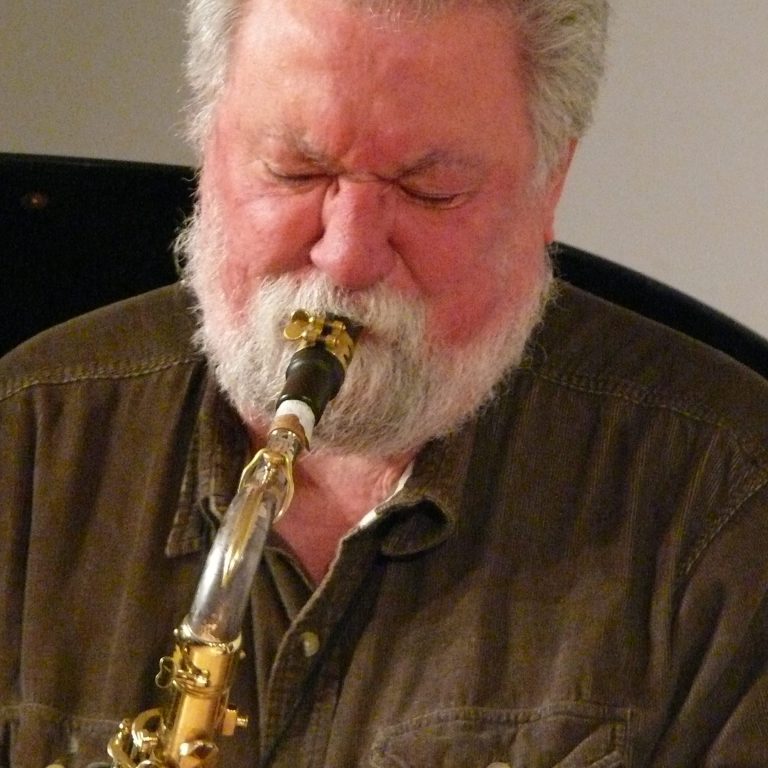
Evan Parker
born in Bristol in 1944, began playing the saxophone at the age of 14. His early influences included Paul Desmond, Eric Dolphy and above all John Coltrane. After experiencing the Cecil Taylor Trio with Jimmy Lyons and Sunny Murray in full bloom in New York in 1962, he was, as he himself says, “marked for life”, converted by the intensity of free jazz. Back in England, he gradually found musicians who shared his enthusiasm, including John Stevens and the members of the Spontaneous Music Ensemble – Dave Holland, Kenny Wheeler, Paul Rutherford, Derek Bailey and others – and above all Peter Kowald, who introduced him to the German scene. Parker played on Peter Brötzmann’s still dangerous ‘Machine Gun’ in ’68, and before the 60s came to an end, he had also recorded with Manfred Schoof and Pierre Favre. In 1970 he joined the Alex von Schlippenbach Trio, of which he is still a member today, and later the Globe Unity Orchestra. By this time, the characteristics of his unmistakable style were already established, his combinations of circular breathing, tonguing, rhythm patterns, harmonics and polytones making his sound instantly recognisable.
Over the past forty years, Parker has been active primarily in free improvised music as a soloist and in groups, but jazz and art music composers have also used the captivating physicality of his tone as a contrasting and invigorating element. His saxophones have been heard in jazz big bands led by Kenny Wheeler, Chris McGregor, Barry Guy, Stan Tracey and Charlie Watts, as well as in the chamber music of Michael Nyman, Gavin Bryars, Frederic Rzewski and others.
Parker, who plays an important role in European improvisation, has also collaborated with American innovators including Cecil Taylor, Paul Bley, Anthony Braxton, Roscoe Mitchell, George Lewis and Wadada Leo Smith. Scott Walker, Robert Wyatt, Annette Peacock, David Sylvian, Jah Wobble, Spring Heel Jack and Squarepusher have all made use of the tonal colours that only Evan Parker’s saxophone has to offer.
The repetitive, detailed patterns of Parker’s soprano saxophone improvisations are reminiscent of the “loops” of system music. He has long been interested in aspects of electronics; as early as 1969, his saxophone phrases in the Music Improvisation Company reacted to Hugh Davies’ manipulated coil microphones. In his later duo with Paul Lytton, too, raw live electronics often took centre stage. Since 1990, Parker has led the Electro-Acoustic Ensemble, whose radical combination of improvisation and real-time sound processing has brought new timbres and working methods to music. Richard Barrett, a member of the ensemble, described the EAE as a model for a new kind of improvising orchestra.
Evan Parker can be heard on over 200 recordings on labels such as ECM, FMP, Emanem, Incus, Ogun, Po Torch, Okka, Island, CBS, RCA etc. In 2001 he founded his own label Psi.